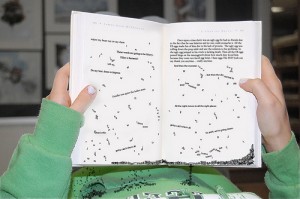As the open education movement grows, the ripple effects of what it means for teachers to take control of what they teach is being witnessed across all spectrums in education. Customizable content, sharing and becoming part of a community, and deconstructing entrenched ideologies about what constitutes quality learning materials -- these are just a few paths that the open education movement is creating.
At the Big Ideas Fest in December, we spoke to stakeholders in open education about how it's transforming learning.
For some, like Una Daly, associate director of Open College Textbooks the movement is inevitable. Open education is a natural progression in the freeing and sharing of information on the Internet. "Open education is an evolutionary step in making sharing easier for students teachers and public," she said.
Neeru Khosla, founder of CK12, a nonprofit open education source for free Web-based content in the form of digital “Flexbooks,” points out that customizable content allows educators to meet each of their students' specific needs, unlike the rigid text format.
But for public school teacher Constance Moore, who teaches art in Oakland, Calif., the logistics of finding open education resources online is a major challenge. "You can't get online," she said. "You can barely send a fax from a lot of public schools. There's a big gap between what's available and how to access it."


